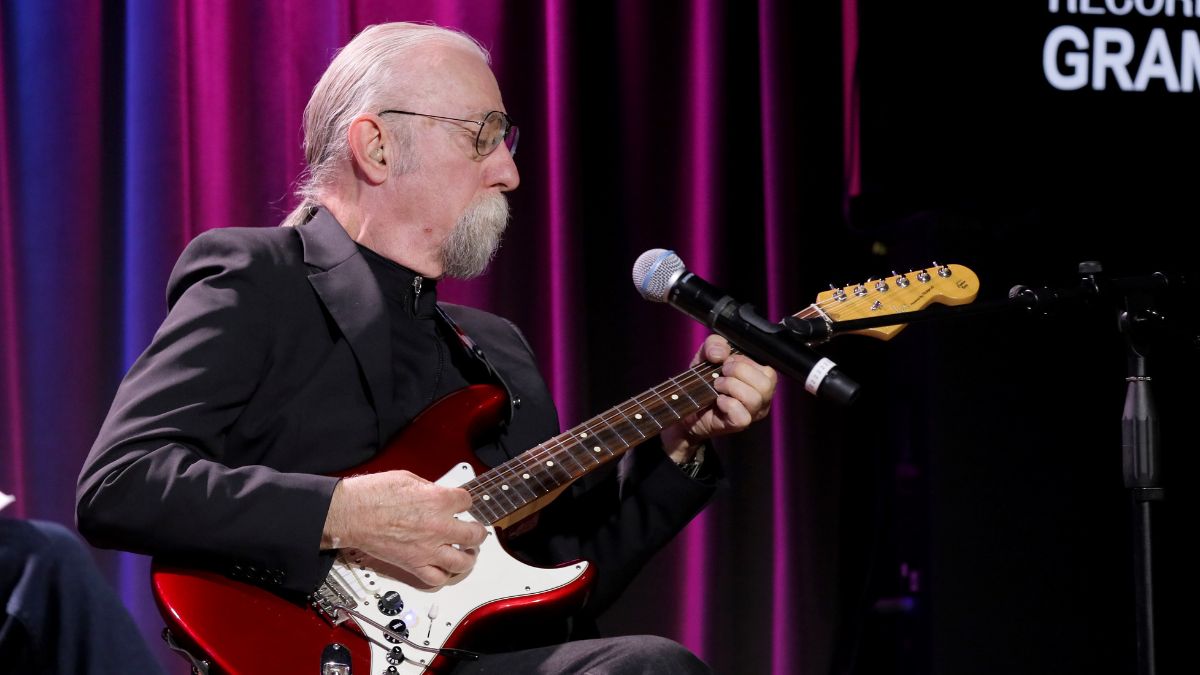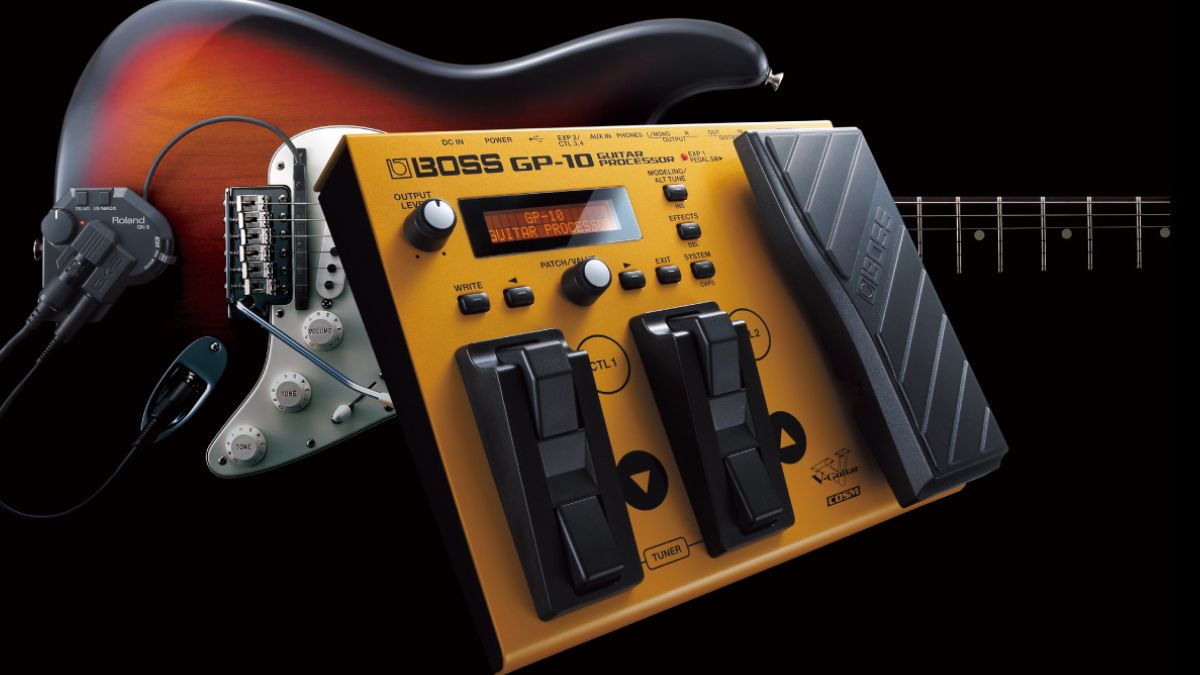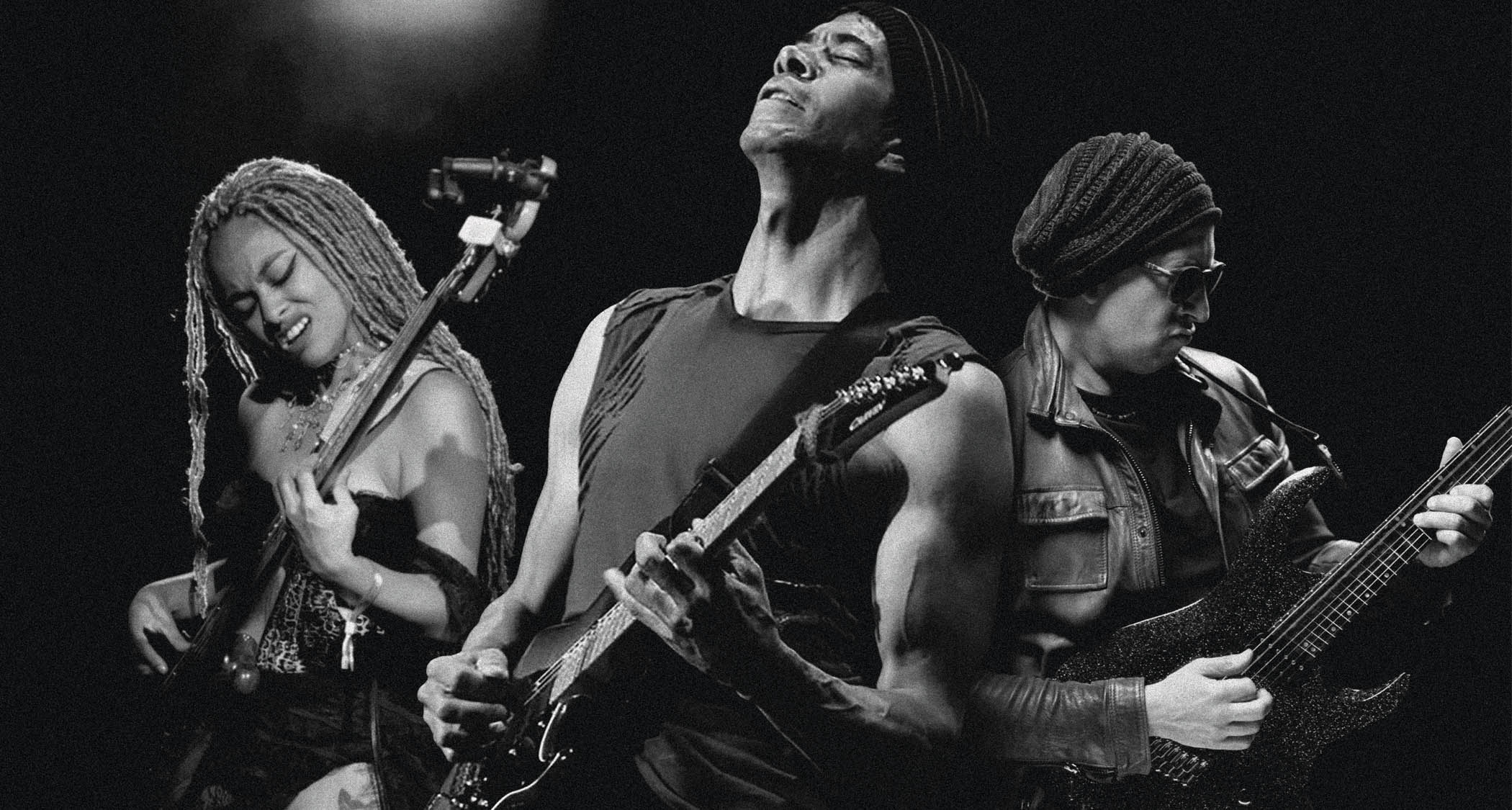“I got tired of carrying different guitars with me. It’s delightful”: Skunk Baxter is a session legend – and his cutting-edge guitar rig probably isn’t what you expect
Baxter has settled on a Roland/Fender Stratocaster, which he uses alongside some other off-the-shelf Roland gear

Having established himself as a go-to session player for stars as diverse as Eric Clapton, Gene Simmons, and Donna Summer, Jeff “Skunk” Baxter has come to rely on gear that’s just as versatile as his shape-shifting playing – and his surprising guitar rig is absolutely loaded with Roland equipment.
Spilling the tea in the new issue of Guitarist, Baxter explains why a little Roland magic has helped cater to all his tonal needs, and why that trend continues through to his amp and pedal choices.
“My main guitar is a Roland G-5, which is a Fender Stratocaster that has modelling electronics in it,” he reveals. “It's a project we did some years ago at Roland because I got tired of carrying different guitars with me. It’s delightful.”
Much like Adrian Belew’s madcap, MIDI-powered Parker Fly signature, the G-5 can change its voice at the flick of a switch. One particular session with Steely Dan producer Gary Katz likely proved to be the final nail in his once-expansive rig's coffin.
“I can have an electric 12-string,” he says of the G-5's functionality, “drop it down to a baritone, be able to have a nylon-string guitar, to just hit the switch and go to an open G…”
It’s also a viable tool for slide guitar, and its trio of single-coils can be rebuffed to sound like humbuckers, with Tele and Strat sounds both baked into the guitar as a part of a library of pickup replicating sounds.
For amplifiers, Baxter looks no further than an off-the-shelf Roland classic, the Blues Cube Artist combo amp. Its secret weapon is Tone Capsule of choice, which plugs into the amp to modify its circuit and alter the amp’s characteristics.
All the latest guitar news, interviews, lessons, reviews, deals and more, direct to your inbox!

“I spent a lot of time working on that design with Roland and customising it,” Baxter relays, “it's exactly what I want.
“And as far as pedals are concerned, many, many years ago, one of my first projects with Roland was to develop the GP-10 [Guitar Processor] multi-effects pedal. And to this day, I still use it. I love it.”

Naturally, some purists may turn their nose up at such a tech-infused rig, but when your day job is as stylistically diverse as Baxter's, it's hard to argue with him craving a little battery-powered versatility.
Elsewhere in his Guitarist interview, Baxter recalls how he once ended up choosing a budget beginner guitar over a vintage Telecaster.
To read Baxter's interview in full, head over to Magazines Direct to pick up a copy of Guitarist magazine.
A freelance writer with a penchant for music that gets weird, Phil is a regular contributor to Prog, Guitar World, and Total Guitar magazines and is especially keen on shining a light on unknown artists. Outside of the journalism realm, you can find him writing angular riffs in progressive metal band, Prognosis, in which he slings an 8-string Strandberg Boden Original, churning that low string through a variety of tunings. He's also a published author and is currently penning his debut novel which chucks fantasy, mythology and humanity into a great big melting pot.
You must confirm your public display name before commenting
Please logout and then login again, you will then be prompted to enter your display name.

